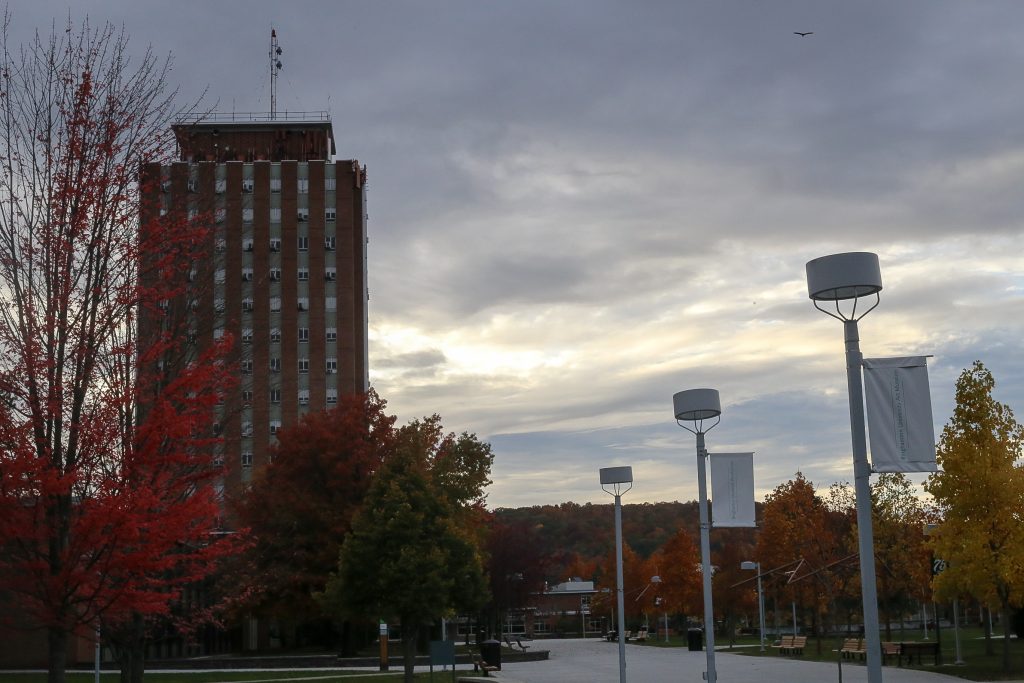United University Professions (UUP), the nation’s largest higher education union, has launched a campaign calling for more funding for the SUNY system.
The campaign comes as concerns are being raised about how a lack of state funding will force SUNY schools to raise the cost of tuition. According to the UUP, if its campaign does not succeed, some are worried that Binghamton University students will be forced to take an increased amount of loans, as BU looks to raise tuition to make up for the lack of funding from New York state.
Fred Kowal, president of UUP, pointed out that tuition increases will negatively affect SUNY’s ability to be an accessible public university system.
“As states like New Mexico, and private institutions like Princeton [University] and other Ivy League universities, we must be bold and begin moving toward a fully state-supported higher education system for working and lower-income families,” Kowal said. “Raising tuition and fees is not an option. We must provide opportunity — that is the role of public higher education. The only way to do that is to make college more affordable, not more expensive.”
Another focus of the UUP is on how the increased funding invested into the SUNY system will yield a positive return for New York state’s economy. SUNY schools have an annual impact of about $30 billion, and every dollar the state invests into SUNY yields a positive return of $8.17, according to a report from the Rockefeller Institute of Government.
The campaign also comes as several SUNY campuses face severe budget deficits. The University at Albany, SUNY Cobleskill and Empire State College are all facing deficits of $15 million, $4 million and $6.9 million, respectively. According to Kowal, these deficits may cause the schools to tap into financial reserves, which can have severe long-term consequences for these campuses.
Parsa Kasraee, a junior majoring in physics, discussed how tuition increases would cause him to go into more student debt.
“I’m trying not to take out as many loans as possible,” Kasraee said. “I don’t want to be worrying about that when I actually go into the field, and overall if it keeps adding up it might stress me out later down the line. I’d prefer if loans were off the table overall, so if that can be minimized by any means, I’d much more prefer that.”
Kowal also said that budget deficits faced by many campuses were proof that SUNY’s funding model was broken, and that the UUP’s proposal to increase funds would benefit students systemwide.
As part of its funding proposal, UUP is calling for 242 new mental health counselors to be hired across SUNY, increased operating aid to campuses, a new round of hiring to improve the student-to-faculty ratio and the expansion of SUNY’s medical educational opportunity program to help students cover advanced degrees in mental health counseling, social work and nursing.
However, some students expressed doubt that increased funding would benefit students. Andrew Tavolette, a freshman majoring in biochemistry, considered the risk that universities may not allocate additional funds in the best interest of the students.
“I feel like more money can always be helpful,” Tavolette said. “I’m just a little worried about how they’re actually going to use it. Personally, I would like more scholarships to be given out. But also, I feel like [the campuses] of some SUNY schools kind of need to get redone and upgraded. So, the money could be used for good, which I’m hoping that if this does go through, that is what happens.”
There is a sense of urgency regarding UUP’s campaign, as Kowal said that if action is not taken soon, several campuses that face yearly deficits will face bankruptcy in the foreseeable future.
“If New York state does not take action, many campuses will not be able to survive financially,” Kowal said. “There are SUNY campuses with yearly deficits that have been forced to utilize reserves to maintain operations. At some point, those reserves will be depleted and the institution will be insolvent. That would be a failure of state government, a failure that will result in the loss of more economic opportunity at a time when we have seen population loss across upstate New York.”



